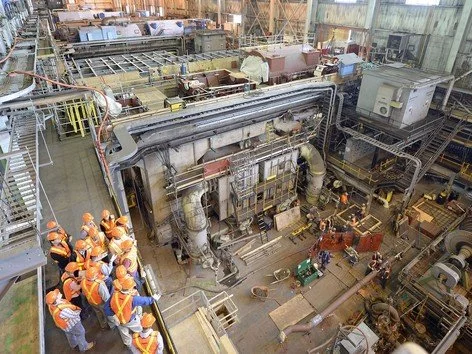The mayor of Hay River says she'll keep "pounding the table" when it comes to the issue of dredging — or lack thereof — in the community's shipping channel that pours into Great Slave Lake, and she hopes "people are listening." Hay River is a hub for Canadian Coast Guard operations and shipping further North. However, in parts of the channel is a buildup of sediment, which sometimes creates obstacles for boats passing through.
Lobbying weakened proposed federal coal effluent rules, critics say
The federal government has bowed to provincial and industry lobbying in weakening proposed standards for coal mining effluent, critics say. The draft regulations, released earlier this year, would double the amount of toxins —such as selenium — the mines are allowed to release and wouldn’t apply to any mine that starts producing before 2027. Nor do they require companies to monitor overall environmental effects. “Environment Canada got pushback,” said Bill Donahue, an environmental scientific consultant and former head of monitoring for the Alberta government. “It dramatically reduced the proposed standards in terms of their stringency.”
This New Bill Aims to End Environmental Racism in Canada
Nova Scotia MP Lenore Zann wants environmental racism — when injustices related to the environment disproportionately impact people of colour and Indigenous groups — addressed in a new bill she’s put forth for debate in the House of Commons. Zann’s Bill C-320 looks to establish a strategy in Canada that would explore the correlation between race, socioeconomic status, and environmental risks, as well as the link between dangerous conditions and bad health in communities where Indigenous groups and people of colour live, CBC reported.
Lack of funding for piped water on First Nations in Sask. means some on reserves can’t drink from their taps
Rebecca Zagozewski, executive director with the Saskatchewan First Nations Water Association, says cisterns can pose health risks to those who rely on them. She says the structures can have cracked lids, which allows all sorts of debris to get into them — including rats, mice, drowned puppies and garbage — and they’re often not cleaned properly. On top of that, she says the Saskatchewan First Nations Water Association is concerned that there is no certification program for water truck drivers. The group wants to create such a program where drivers would have to be trained in how to keep the water safe and be held accountable if things go wrong. “Because right now there’s no accountability,” she says.





